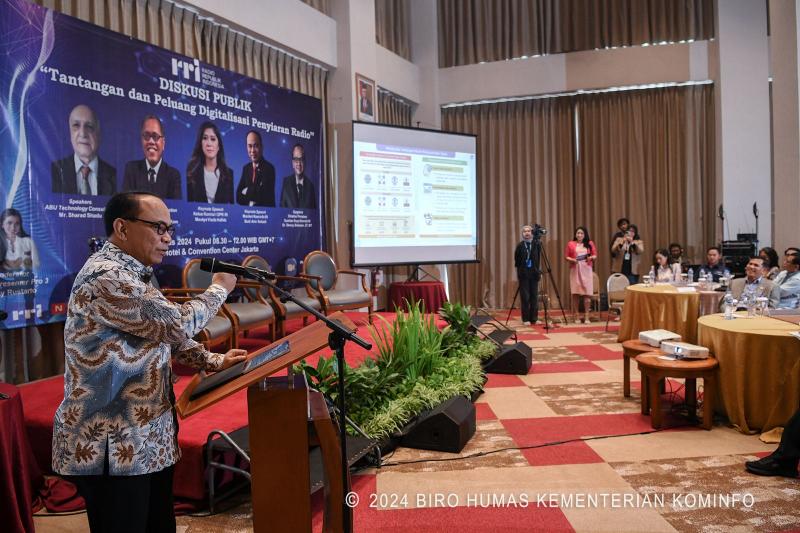The advancement of digital technology has shifted the behavior of audiences in listening to radio broadcasts. Currently, there is a tendency for the use of on-demand radio to increase, allowing listeners to choose the appropriate content.
Responding to the dynamics of disruption due to technology, Minister of Communication and Information Budi Arie Setiadi encouraged the Public Broadcasting Institution (LPP) Radio Republik Indonesia (RRI) to implement digitalization so that it can present a new, more interactive format with the use of more advanced technology.
“The disruption to the broadcasting industry presents a challenge for radio people to continue to maintain their existence. This provides an urgency for the radio broadcasting industry to adapt to technological developments,” he said in a Public Discussion on “Challenges and Opportunities for Digitalization of Radio Broadcasting” organized by LPP RRI in Central Jakarta.
The event was attended by the RRI LPP Supervisory Board and the RRI Board of Directors as well as academics and students representing campuses in Indonesia who attended both offline and online.
Minister Budi Arie emphasized that the Ministry of Communication and Information has issued regulations that can facilitate the development of digital-based radio broadcasting. However, the implementation of regulations needs to be balanced with the implementation of four strategic steps.
“First, the need for coordinated planning to ensure the direction of digitalization that is in accordance with market developments, community demands and sustainable. Second, a multi-stakeholder approach that seeks organizers, regulators and the public in various stages of digital radio broadcast development,” he said.
The third step is related to optimizing the development of the digital radio ecosystem through the utilization of the RRI LPP infrastructure. Including accommodating DAB+ and DRM technology standards.
“Finally, it is necessary to form supporting regulatory policies related to various efforts to digitize national radio broadcasts from the planning phase to the implementation phase,” explained the Minister of Communication and Information.
National research data shows that the percentage of online radio content is still relatively low at 8.9%. “This is also a challenge for the radio industry so that this omnichannel is also a necessity in the future, maybe radio content can be switched into social media such as TikTok for example,” said Minister Budi Arie.
Therefore, to respond to the growing trends and needs of the audience, the Minister supports the implementation of more interactive formats and access such as the integration of elements and the use of audio on demand as well as the use of data analytics.
“If radio people are able to utilize their potential, the future of radio will actually open up promising opportunities. In fact, it can encourage program development strategies and advertisements that are in accordance with current consumer behavior patterns,” he said.

